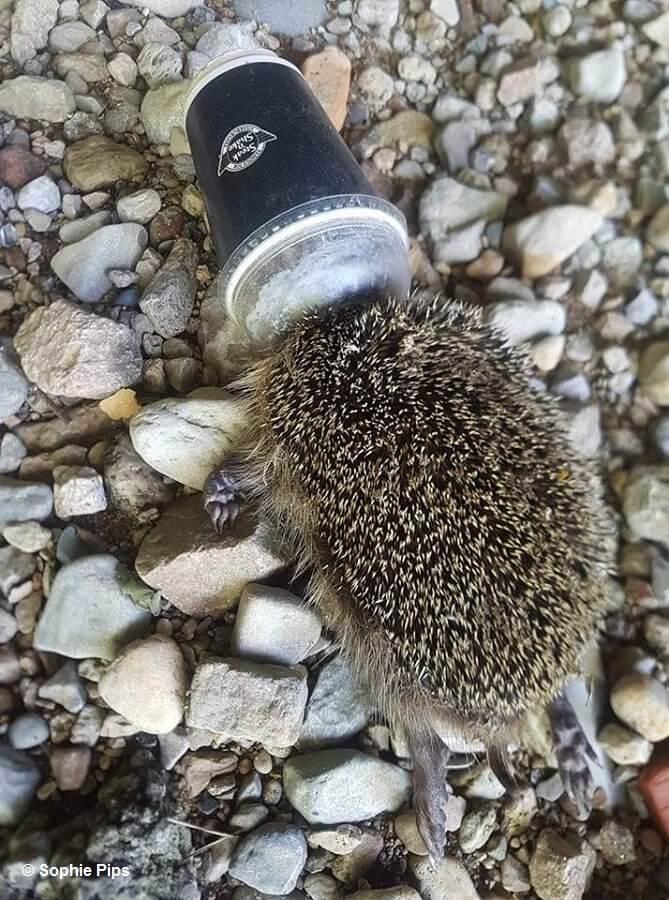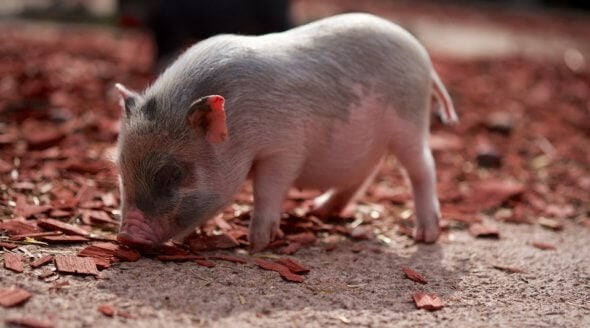How Littering Kills Animals
It’s well known that litter is detrimental to our oceans and the rest of our environment, but did you know that it’s also bad for animals? From cats to catfish, countless animals’ lives can be destroyed by littering – unless we take action.
Everyday items such as empty tins and plastic bottles can be deadly for unsuspecting animals, who can get their heads stuck in them, accidently eat them, or hurt themselves on sharp edges. Here are some tips and tricks for preventing harmful litter:
Six-Pack Rings
This poor duck in Worcester that has a plastic beer can holder stuck in her mouth has so far evaded #RSPCA capture. pic.twitter.com/rdxz94f2
— Judith Haw (@Hawjjj) January 27, 2012
What can happen: Six packs of drinks cans often come strung together by plastic rings. This duck’s beak got caught in one of them.
How you can help: Cut apart all sections of plastic six-pack rings, including the inner diamonds.
Fishing Line and Hooks
.@CICTMAR @A_W_Global @JustSeaTurtles Hook & 7 ft of fishing line removed from Holiday, a loggerhead sea turtle, at Gumbo Limbo in Boca pic.twitter.com/Nz2FC5v7JX
— Laura B (@Laura33477) December 6, 2016
What can happen: Birds frequently get their beaks wrapped or wings tangled up in discarded fishing line. Hooks can be swallowed or become embedded in birds’ skin or beaks.
How you can help: Never go fishing! If you spot fishing litter, pick it up and dispose of it. Always speak up for fish and other marine animals and explain to others why fishing is wrong.
Beer and Soft-Drink Cans
A poor gull stuck in a beer can! Stop litter hurting our wildlife: Support Container Deposits! http://t.co/kefTDS1ZVz pic.twitter.com/Zy51ZcxmI2
— Kicking the Can (@kickingthecan) 4 April 2013
What can happen: Even the tiniest animals can fall victim to litter. Discarded drinks cans are tempting to small animals who are looking for food or shade. Animals can also be cut by cans’ sharp edges.
How you can help: Be sure to dispose of your cans responsibly. Rinse and crush them before tossing them into the recycling bin. You can also carefully fold the tab back to block off the hole on the top.
Chewing Gum
What can happen: Animals often step in gum, which can become matted in their fur or feathers, making it difficult for them to move.
How you can help: Never spit gum onto the ground. Wrap it in paper, and put it in the bin.
Tins, Cups, and Jars
This is what irresponsibility leads to. young wolf stuck his head in a plastic container and for a long time was without food and water. Fortunately, people saw the animal and helped. The wolf was saved. Stop throwing garbage! 😡😡😡😡 pic.twitter.com/wAASbGyA5C
— Lana Koroleva (@LukeRussia) July 9, 2018
What can happen: Hungry animals desperate for even just a few crumbs often get their heads stuck in discarded tins, cups, and jars.
How you can help: Always rinse out containers (and place the lids back on them!) and crush tins before disposing of them.
Plastic Bottles and Bags
An endangered #redsquirrel has died after becoming trapped inside a discarded plastic jar. Very sad to see another animal suffer as a result of #roadsidelitter https://t.co/RDcJ43tJIF #dontbeatosser 🚯💔😢🐿️ pic.twitter.com/7jAX6cRkai
— Keep Britain Tidy 🚮 (@KeepBritainTidy) July 27, 2018
What can happen: Whales, turtles, and seabirds often mistake rubbish for food, and if eaten, it can choke them or cause fatal stomach or bowel obstructions. They can also get trapped, injured, and killed by discarded plastic bottles and bags.
How you can help: When shopping, take your own reusable bags whenever possible. And carry a reusable water bottle with you instead of buying bottled water.
*****
Remember: never, ever litter. Animals of all kinds often mistake litter for food or shelter. Securely cover rubbish and recycling bins so that animals can’t get into them and become trapped inside. And don’t forget to keep an eye out for other people’s rubbish, too. Your actions could make the difference between life and death for an animal.
What Else Can You Do for Animals?
The best thing anyone can do for animals is to stop eating and wearing them. Take PETA’s 30-day vegan pledge and we’ll guide you through all the latest and greatest things in the vegan world – from plant-based breakfast extravaganzas to animal-friendly clothing – and give you tips on showing compassion for all living beings in every aspect of your life.






